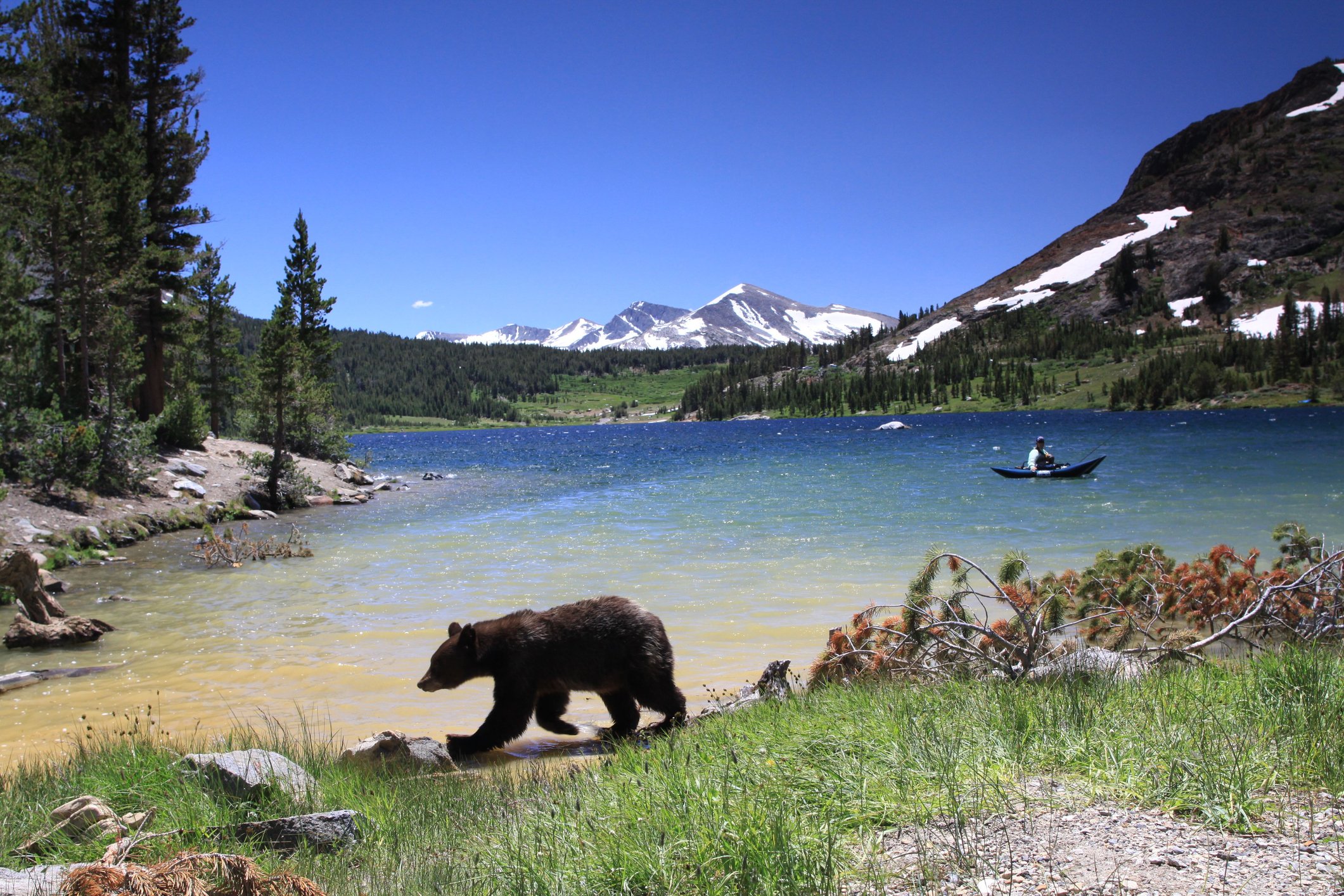
Hunting and Fishing in Bear Country
Hunters and anglers need to be extra cautious while recreating in bear country. These activities come with a higher risk of surprising a bear or attracting one to camp, making it essential to prevent encounters when possible and ensure you’re prepared for an encounter.
Avoid Bear Encounters
The usual advice to avoid bear encounters when recreating is to make noise, avoid activities at dusk and dawn, and avoid signs of carcasses. This advice doesn’t work for hunters or anglers. You’re trying to be quiet while traveling on game trails or along brushy creek bottoms; you’re often out before the sun comes up and long after it’s sunk below the horizon; and you’re not only approaching, but handling carcasses. Still, there are steps you can take to lessen your chances of running into a bear.
Like all backcountry enthusiasts, hunters and anglers should keep a clean camp and secure potential attractants where bears can’t get at them. Because hunting and fishing camps often contain large quantities of meat and fish, portable electric fencing is highly recommended.
Once you have killed your game, remove the carcass as quickly as possible from the site and let others in the area know there is game residue present. If you have to leave a game carcass overnight, use a portable electric perimeter fence and make sure it is well out in the open. You can also hang a motion sensitive alarm like a Critter Gitter near the carcass; the alarm will not only scare other animals away, but can warn you if something is in the area as you approach the carcass. Approach the site very carefully when retrieving your game the next day; make noise and stay alert. If a bear has claimed a carcass before you’ve had a chance to recover it, let the bear have it and leave the area.
Be Prepared for Bear Encounters
Understand bear behavior and how to react in an encounter. If you are in a group, establish a clear plan for what to do if you encounter a bear before setting out for the day.
Always carry and use bear spray as the first line of defense—even if you’re carrying a gun. If you come across a bear while hunting other game, make every attempt to resolve the situation non-lethally. Shooting at a bear often wounds the animal, and a wounded bear may become aggressive. If a bear is attacking you or someone in your group, bear spray provides a safer option to defend yourself and others.
More Resources
Website: BearWise offers more safety tips for hunters, including about black bears approaching tree stands and wildlife feeding.
